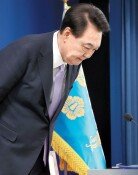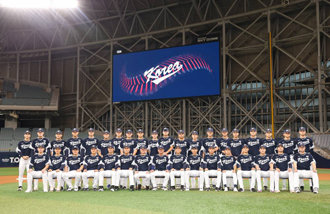[Opinion] Paradox of Water
Water, water, everywhere, nor any drop to drink. An ancient mariner rattled off at supernatural horrors to which his killing a mythical bird albatross led. So wrote Samual Coleridge, who opened Romanticism in England, in his poem The Rime of the Ancient Mariner. There is nothing so common as water, but there is nothing so invaluable as water. This paradox of water makes the Bible, the Koran, and all other sacred books of all times and places describe water as the fountain of life and the symbol of destruction and resurrection.
In the Middle East, where water is more valuable than oil, water has been behind regional conflicts and has been regarded as one of the stickiest issues. Israeli Prime Minister Ariel Sharon said that the Six-Day War in 1967 broke out because Syrian engineers tried to divert water from Israel to their country. Water and oil are also behind conflicts among Central Asian nations such as Tajikistan and Uzbekistan. Oil can be imported but water cant be with ease. Such complexity led Chairman Ismael Serageldin of the World Water Commission to warn that wars in the 21st century would be for water.
Theoretically speaking, there is no greater resource that human beings are allowed to waste. Although 97 percent of the worlds water is saltwater and another two percent of freshwater is trapped in the form of iceberg, human beings can survive with the remaining one percent if carefully managed. It is because water has been continuously circulating since the creation of the Earth in various forms such as rain, ocean, river and steam without any change in total volume. The problem is that water is not properly placed where it is needed, is provided at excessively low prices against economic rationale, or is not controlled wisely and wasted.
Water and sanitation are the top agenda at the Special Session of the United Nations Environment Programme (UNEP) being held on Jeju Island. One third of the worlds population does not drink clean water. Five thousand children are dying everyday from lack of water. Korea, being categorized as a water-stressed country along with Somalia and Zimbabwe, should no longer recklessly waste water. While it is important that each individual saves water, it is essential that the government take the initiative in managing the use of water by improving irrigation facilities and developing new sources of water. More importantly, we all need to realize the paradox of water and life that what seems the most common is actually the most valuable and the fountain of life also could bring about disaster.
Editorial Writer Kim Soon-duk yuri@donga.com
Headline News
- Pres. Yoon addresses the nation at a press conference
- LX Group chairman gifts 100 million won to employee family welcoming quadruplets
- Tax-exempt shared offices in rural areas misused as tax havens
- President-Elect Trump promises 'peace through strength'
- French gambler wins 67.2 billion won by betting on Trump’s election win







